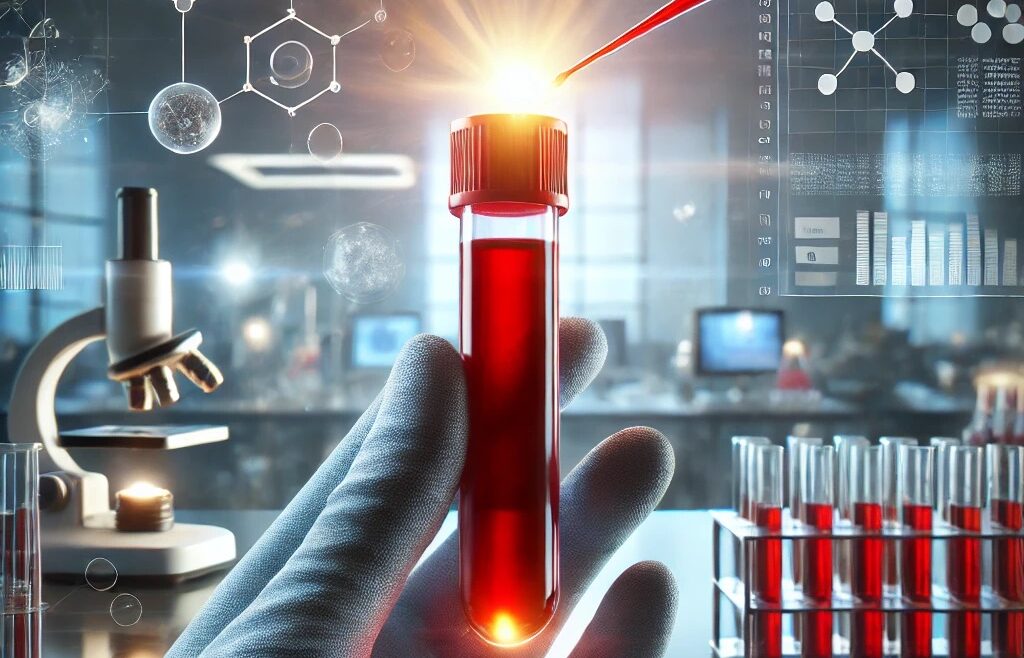What is Albumin?
Albumin is the most abundant protein in the blood plasma, produced primarily by the liver. It plays several essential roles in the body, from maintaining fluid balance to transporting hormones, vitamins, and drugs throughout the bloodstream, which is why albumin testing is important. This protein is essential for various bodily functions, including:
Maintaining Fluid Balance: Albumin helps regulate the movement of water between tissues and the bloodstream, preventing swelling or edema.
Transporting Substances: Albumin acts as a carrier protein, transporting hormones, vitamins, minerals, fatty acids, and drugs through the blood. This transport function ensures that these substances reach the tissues and organs that need them.
Binding and Detoxification: Albumin binds to waste products, such as bilirubin and toxins, helping to remove them from the body efficiently.
Alliance provides comprehensive albumin testing services to help diagnose and monitor various health conditions, including liver and kidney diseases.
Importance of Albumin
Albumin levels in the blood are a crucial indicator of overall health, particularly liver and kidney function. Abnormal albumin levels can indicate various health conditions and help guide diagnostic and treatment decisions. Here’s why albumin is essential:
Indicator of Liver Health: Since the liver produces albumin, low levels can indicate liver disease or liver damage. Conditions like cirrhosis, hepatitis, or liver failure can reduce albumin production, leading to a drop in blood albumin levels.
Kidney Function: Albumin levels can provide insight into kidney health. Normally, albumin is not lost in the urine in significant amounts. However, kidney damage can cause albumin to leak into the urine, leading to low albumin levels in the blood, a condition known as albuminuria. This can be an early sign of chronic kidney disease.
Nutritional Status: Albumin levels can also reflect a person’s nutritional status. Low levels may indicate malnutrition or a diet deficient in protein, while high levels can suggest dehydration.
Response to Infection and Trauma: Infections, severe burns, or chronic inflammation can lead to a drop in albumin levels as the body uses its resources to respond to these conditions.
The Importance of Albumin Testing
Albumin testing is a simple and effective way to assess the overall health and functioning of major organs, particularly the liver and kidneys. Understanding albumin levels can provide valuable insights into several health conditions:
Diagnosis of Liver Diseases: Low albumin levels may be a sign of liver diseases such as cirrhosis or hepatitis. By measuring albumin levels, healthcare providers can assess liver function and diagnose liver-related conditions.
Monitoring Kidney Function: Albumin testing helps detect and monitor kidney disease. Elevated albumin in the urine (albuminuria) indicates that the kidneys are not filtering properly, which can be an early sign of kidney damage.
Assessing Nutritional Status: Albumin levels are often used to evaluate nutritional status, particularly in patients with chronic illnesses or those recovering from surgery. Low albumin levels can indicate poor nutrition or malabsorption conditions.
Evaluating Dehydration: Elevated albumin levels may indicate dehydration, as reduced fluid levels concentrate the protein in the blood. In such cases, albumin testing helps confirm the need for rehydration.
Our Albumin Testing Service
At Alliance we offer precise and reliable albumin testing to support the diagnosis and management of various health conditions. Below are the details of our albumin test:
Albumin Test Details
Specimen Requirement: The test requires a blood sample, collected in a o.5ml serum separator tube (red-grey marble). Proper sample handling is critical to ensure the accuracy of test results.
Stability of Specimen: The sample is stable for up to 7 days at ambient temperature and up to one month when refrigerated. Note that specimens will be discarded after 14 days of storage to ensure the integrity of the test.
Clinical Utility of Albumin Testing
Albumin testing is a valuable tool for diagnosing and monitoring numerous diseases. Elevated levels of albumin can indicate dehydration, as the concentration of albumin increases when fluid levels are low. On the other hand, low levels of albumin can result from kidney or liver disease, infections, or severe burns. Regular monitoring of albumin levels is crucial for patients with chronic conditions affecting these organs, as it helps guide treatment decisions and assess the effectiveness of interventions.
Monitoring Albumin Levels for Better Health
Understanding your albumin levels is crucial for diagnosing potential liver or kidney diseases and assessing your nutritional and hydration status. Our full-service laboratory provides accurate and comprehensive albumin testing, offering valuable insights into your health that can help you and your healthcare provider make informed decisions.


